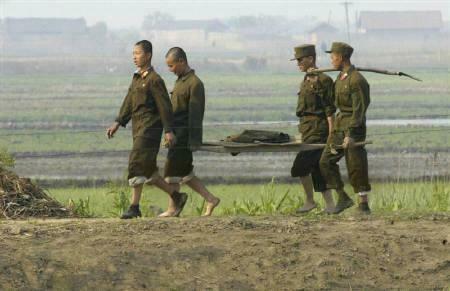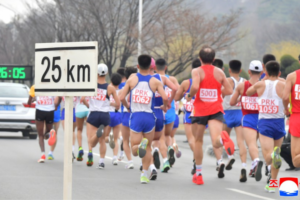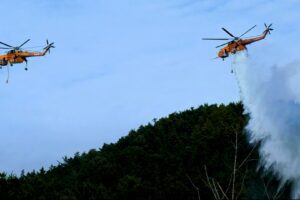On December 10, the Western world will be celebrating the 63rd anniversary of the “Universal” Declaration of Human Rights. As South Koreans mourn the loss of two civilians and two marines as a result of the shelling by North Korea of her island Yeonpyeong on 23 November 2010, South Korea and the world should equally remember the 22 million North Korean population who continue to suffer from ongoing food, water and electricity shortages. North of the DMZ and only 70 km away from the vibrant and fashion capital Seoul, linger in prison camps an estimated 200 000 “political” prisoners. The country itself could be compared to a large prison, where the authorities regularly resort to the use of arbitrary detentions, inhumane and degrading treatments, and torture. Not to mention the repression of all basic freedoms and civic rights.
North Korea is also proudly implementing a military first policy, privileging the rights of soldiers over the rights of its own civilians. A military first policy means that for the outside world, North Korea remains a military and possibly nuclear threat. The sinking of the South Korean battle ship in March 2010 and the recent exchange of fires between the two Koreas serve as painful reminders of the unresolved conflict and the urgent necessity to establish reconciliation and peace on the peninsula.
On December 10, the Western world will be celebrating the 63rd anniversary of the “Universal” Declaration of Human Rights. As South Koreans mourn the loss of two civilians and two marines as a result of the shelling by North Korea of her island Yeonpyeong on 23 November 2010, South Korea and the world should equally remember the 22 million North Korean population who continue to suffer from ongoing food, water and electricity shortages. North of the DMZ and only 70 km away from the vibrant and fashion capital Seoul, linger in prison camps an estimated 200 000 “political” prisoners. The country itself could be compared to a large prison, where the authorities regularly resort to the use of arbitrary detentions, inhumane and degrading treatments, and torture. Not to mention the repression of all basic freedoms and civic rights.
North Korea is also proudly implementing a military first policy, privileging the rights of soldiers over the rights of its own civilians. A military first policy means that for the outside world, North Korea remains a military and possibly nuclear threat. The sinking of the South Korean battle ship in March 2010 and the recent exchange of fires between the two Koreas serve as painful reminders of the unresolved conflict and the urgent necessity to establish reconciliation and peace on the peninsula.
Try unlimited access
Only $1 for four weeks
-
Unlimited access to all of NK News: reporting, investigations, analysis
-
Year-one discount if you continue past $1 trial period
-
The NK News Daily Update, an email newsletter to keep you in the loop
-
Searchable archive of all content, photo galleries, special columns
-
Contact NK News reporters with tips or requests for reporting
Get unlimited access to all NK News content, including original reporting, investigations, and analyses by our team of DPRK experts.
Subscribe
now
All major cards accepted. No commitments – you can cancel any time.











